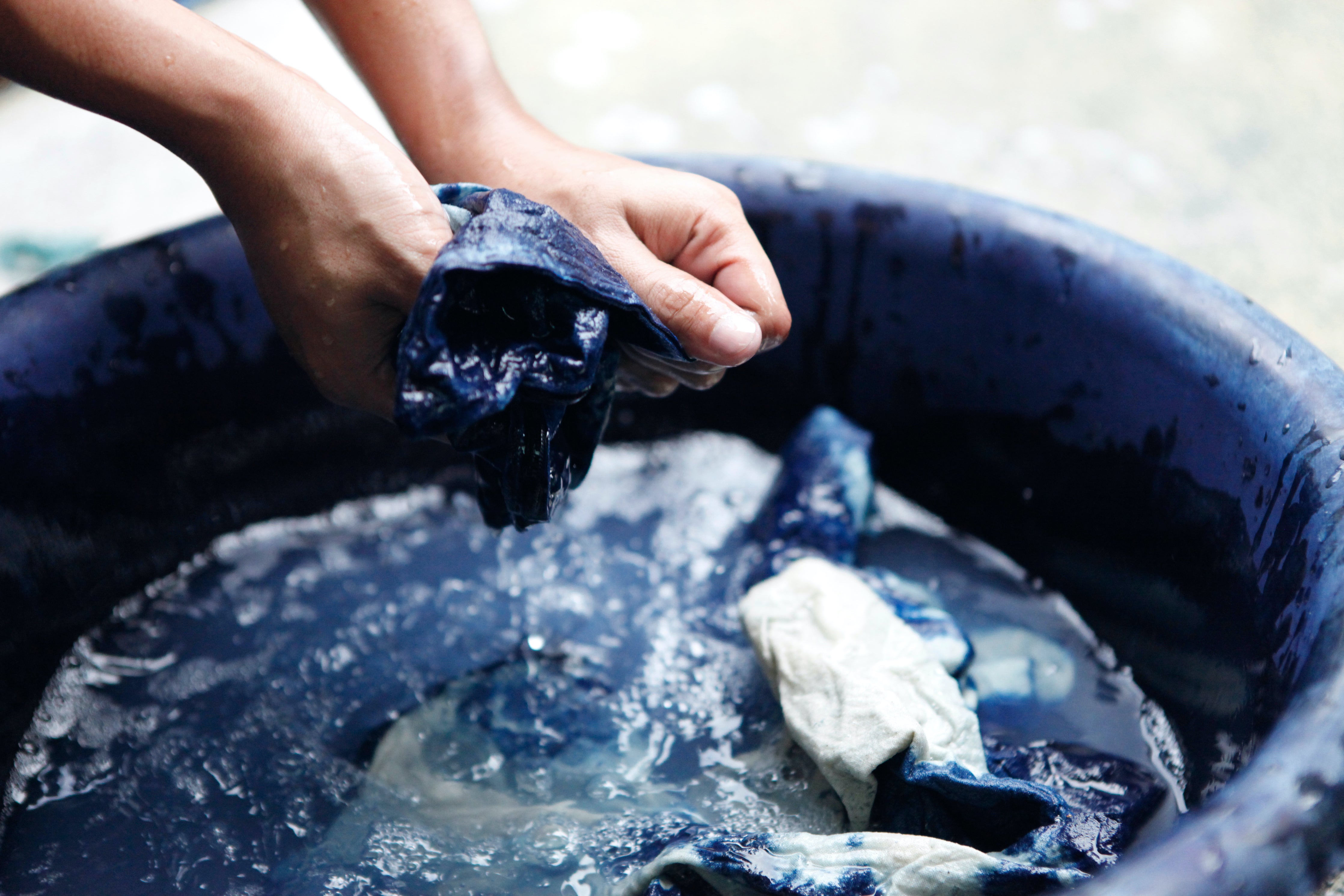Dyeing Clothes? Here's Why We Don't Use Synthetics

Dyeing clothes is undoubtedly a fun way to give your favorite clothing items a new look. This cost-effective fabric rejuvenation process transforms a once simple t-shirt into a favorite wardrobe option using a wide palette of colors.
Although dyeing procedures seem like a piece of cake as it can be done at home, the whole experience could become a harmful undertaking when indelicate materials are used—damaging not only the wearer's skin but also the environment in the process.
What's the secret to dyeing garments in the most environmentally-safe way? Choosing natural materials over the synthetics.
The Right Dye
The step to successfully dyeing a piece of clothing starts after picking the right colorant between natural and synthetic dyes.
The fast fashion industry, known for its constant introduction of new products, frequently utilizes synthetic dyes to keep consumer demand amid changing trends. However, as we widen the variety and intensity of colors, our clean rivers suffer the consequences.
When textile industries become irresponsible, untreated liquid wastes from synthetic dyes pollute nearby rivers and water sources for the price of bright-colored jeans. On the other hand, natural dyes remain valued for their purity and eco-friendly traits since they do not contain chemicals detrimental to health and the environment.
The Right Fabric
After selecting the right dye, knowing whether a fabric uses natural material or man-made substances also matters since not all types of fabric are created equally.
Synthetic fibers, mostly sourced from inorganic products, can be difficult to dye because of its chemically-blended substances. When there is too much synthetic material, the dyes fail to seep through the fabric, which results in a more diluted hue. Aside from that, synthetic garments sewn with synthetic threads remain white despite being submerged in water.
This is where natural fabrics, like cotton, stand out with their ecological importance and practicality. Cotton, a versatile material utilized around the world, is recognized for its mellowness, comfort, and breathability.
The known absorbent and hydrophilic quality of cotton accommodates permanent colors, making it an easy fabric to dye. Also, cotton garments stitched using cotton threads dye just like the fabric, saving dyed clothes from looking odd.
The Right Product
Having these considerations in mind, Cottonique, the leading hypoallergenic clothing in the United States, pushed boundaries to create a “Nothing But Cotton” collection.
From drawstring knit-shorts and briefs to drawstring brassieres and t-shirts, Cottonique has worked earnestly over the years to develop all-cotton garments free from any synthetic material. Realizing the detrimental effects of non-organic materials to those who have sensitive skin, Cottonique utilized a unique hypoallergenic “drawstring” design that works without the use of any elastics.
The 100-percent organic cotton products made by the allergy-free apparel are safe from dyeing ideas at home. The sewing thread stitch even gets the same color as the fabric when dyed.
Head over to Cottonique and see for yourself the merits of using Nothing But Cotton items: a stronger, softer, and a more comfortable clothing choice that would allow you to wear your favorite colors in the most eco-friendly way.
As large-scale manufacturers try to recognize the benefits of natural dyes, perhaps we could also make active decisions in choosing environmentally friendly dyes and naturally-made fabric even within the confines of our home.




